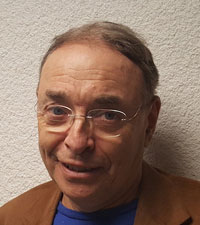By Tom H. Hastings
Though he gave credit to another social scientist who expressed the concept, it was Alfred Korzybski who, in 1931, coined the expression, “The map is not the territory.” In other words, an idealized model of anything is not the thing.
Those of us who promote peace and nonviolent conflict transformation face this constantly, especially those of us who are scholar/practitioners. We teach, we train, we bring our method into the streets and the streets sometimes defeat our methods. On our local peace team we see this and call ourselves “a learning community,” and always offer the disclaimer, “There is no such thing as a guaranteed method of conflict management, whether violent or nonviolent, there is only a best bet based on experience and research.”
We are seeing this concept writ large in many ways these days; the science predicting climate chaos falls behind the roaring disasters again and again, and climate scientists have to tell the public and policymakers, “Um, looks like our modeling that shows increasing problems is updated to warn us that it’s getting much worse much faster.”
Some years ago this happened to understanding the potential catastrophic effects of even a “limited” nuclear war, perhaps one between India and Pakistan over Kashmir, or Russia and some NATO “battlefield,” or “tactical,” nuclear weapons, or perhaps China and a US nuclear submarine over Taiwan. Hey, what about Israel and Pakistan? Or North Korea and just about anybody? That science, updated, shows any of these “small” nuclear wars would immediately slaughter millions but over a period of years of nuclear winter, would poison and starve literally billions.
So the model of nuclear deterrence, which depends on complete and permanent perfection to avoid human, instrumental, or mechanical error resulting in a short and limited nuclear “exchange,” is just a model. As Alan Watts put it, “the menu is not the meal.”
The truly tragic part of this human problem is that all of these potential planetary catastrophes are self-inflicted. It is as though humanity doesn’t have enough dire threats from earthquakes, hurricanes, random asteroids, or an array of other natural disasters. We seem compelled to create unnatural disasters and then argue about the details.
Other modeling gives us hypothetical tripwire dates for our big picture fiscal commitments. When Social Security will run out of money and fail to support elders and people with disabilities has changed from “never” to 2037 and now to just 10 years from now. Modeling by the Congressional Budget Office that theoretically would reduce both federal deficit and debt is vague but offers some components that would include both increased efficiency (such as reducing the Dept of Defense outlays, presumably encouraging a stronger accountability and fewer obscene war profiteering contracts), but also painful options such as reducing support for many classes of vulnerable Americans.
Taxing the rich might literally inflict pain on nobody, as the many $billions still in the coffers of Elon Musk, Jeff Bezos, Mark Zuckerberg and other billionaires after a serious wealth tax would still leave them all with more money than they could spend in several lifetimes on all the luxuries they dream up.
Clearly, modeling is helpful, yet is also quite sterile unless it can be more imaginatively and yet realistically conceptualized. This is why Native Americans just roll their eyes when others claim to “know how you feel,” or a woman who is raped, poor, pregnant, and desperate for an abortion in nine of the US states with no exceptions to their abortion ban laws knows she is facing something the Republican lawmakers can never understand.
The theory is not the practice, however crisp and clean the theory feels. Until we teach and practice deep empathy, serious envisioning, and getting our hands in the muck, not just the Ansys, Flexsim, or other software modeling tools, we will continue to see false abstractions instead of emotionally engaging consequences to our human decisions.

